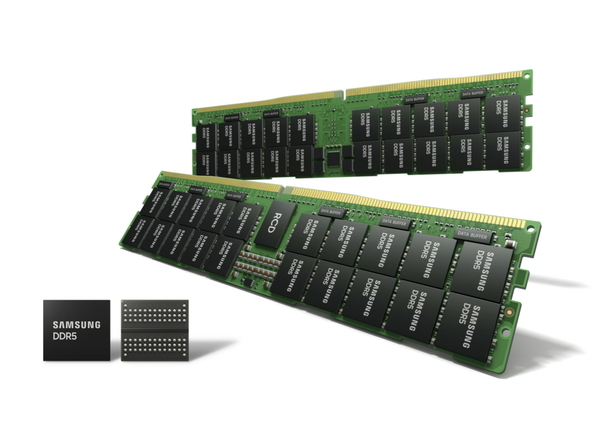
Mass production of advanced memory chips begins
South Korea's Samsung Electronics announced on Oct. 12 that the company has begun churning out 14-nanometer (nm) five-layer memory chips based on extreme ultraviolet (EUV) technology.The Seoul-based company, which shipped EUV DRAM in early last year for the first time in the industry, said that the 14nm product is the thinnest in the world.As DRAM continues to scale down the 10nm range, many companies have tried to adopt EUV technology to improve patterning accuracy for higher performance and better yields.Samsung said that it managed to increase the number of EUV layers to five.“We have led the DRAM market for nearly three decades by pioneering key patterning technology innovations,” Samsung Senior Vice President Lee Joo-young said in a statement.“Building on this advancement, we will continue to provide the most differentiated memory solutions by fully addressing the need for greater performance and capacity in the data-driven world of 5G, AI, and the metaverse.”Samsung said that its new product could enhance the overall wafer productivity by up to 20 percent, and the 14nm process can reduce power consumption by up to 20 percent compared to previous items.“For non-memory semiconductors, 5nm process has been already commercialized. But for memory chips, even 20nm technology is not easy,” Prof. Kim Pil-soo at Daelim University said.“To make a breakthrough, global companies adopt EUV technologies. Samsung’s cross-city rival SK hynix also braced for the technology midway through this year.”Samsung Electronics is the world’s largest manufacturer of memory chips, while SK hynix is the No. 2 player.Samsung Electronics shared went down 3.5 percent in the Seoul bourse on Oct. 12 when the benchmark KOSPI went down 1.35 percent.이 기사를 공유합니다
Tim Kim
(voc200@gmail.com)

